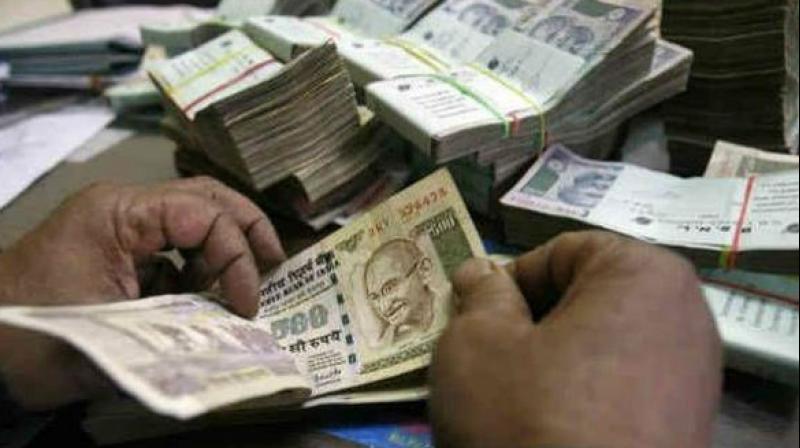Tax exemption on deposit of old notes only for registered political parties: FM
The ministry added that the exemption would also be subject to conditions mentioned in Section 13A of the IT Act.

The ministry added that the exemption would also be subject to conditions mentioned in Section 13A of the IT Act, which includes, maintaining books of accounts and other documents that would enable Assessing Officer to deduce its income therefrom.
“In respect of voluntary contribution in excess of Rs.20,000, political party will have to maintain record of such contributions. The political party has to submit a report to Election Commission about donations received within a time frame prescribed,” the Finance Ministry said.
Meanwhile, the Central Board of Direct Taxes Clarifying (CBDT) spoke on reports that it cannot scrutinise tax returns of political parties and said, "There are enough provisions in the Income Tax Act to scrutinise the accounts of the political parties and these political parties are also subject to other provisions of Income -tax including filing of return."
Donations to registered political parties are exempt from income tax subject to certain conditions including audit of accounts and all donations above Rs 20,000 taken in tax, the CBDT said.
"In respect of each voluntary contribution in excess of Rs 20,000, the political party will have to maintain a record of such contributions along with the name and address of such person who has made such contribution," CBDT said in a statement.
Further, the accounts of each political party are to be audited by a Chartered Accountant. Besides, political parties have to submit a report to the Election Commission about the donations received within the timeframe prescribed.
Section 13A of the Income Tax Act, 1961 grants exemption from tax to political parties in respect of their income. This income could be from house property, other sources, capital gains and income by way of voluntary contributions received from any person.
These categories of income qualify for exemption without any monetary or other limit and the income so exempted is would not even be included in the total income of the political party for the purpose of assessment.
However, the tax exemption is applicable only if the political party keeps and maintain such books and other documents of the income and the accounts are audited by a Chartered Accountant.
The government had announced the tax exemption for political parties on Friday, attracting criticism from West Bengal chief minister Mamata Banerjee and her
“They need to clarify that #DeMonetisation means it is #DeMonetisation for all. Same rules for everyone. If 500/1000 are illegal tender, then how are they trying to show that there is a division btwn common people & political parties?” Banerjee said in a series of tweets.
“Even the timing of these statements show that there may be an ulterior motive. Is there a motive? Are they trying to give a hidden message to cadre of one political party? Why these confusing and misleading statements now? They must clarify,” she said.
Kejriwal on the other hand sought to link the Centre's tax exemption decision to the meeting between Prime Minister Narendra Modi and Congress Vice President Rahul Gandhi yesterday, suggesting the announcement was outcome of the parleys between the two.
"We demand setting up of an independent commission to probe into bank accounts details of political parties over the past five years, to investigate into their sources of funding," Kejriwal said at a press conference.

